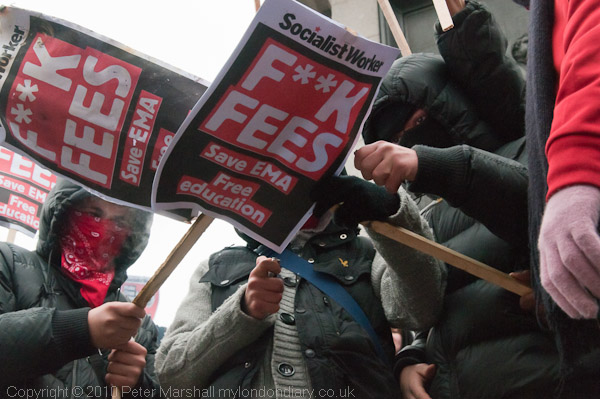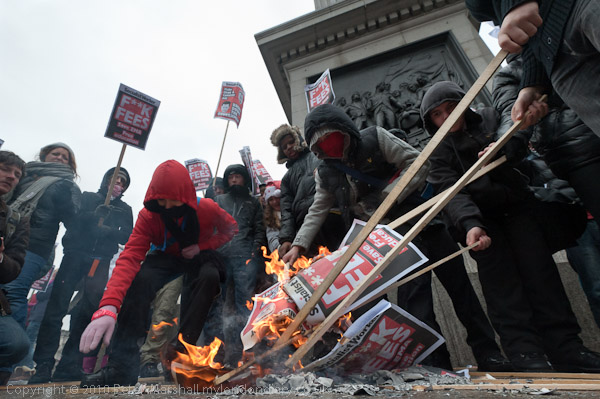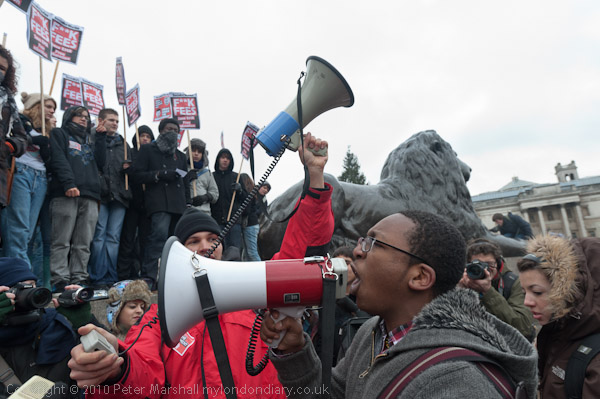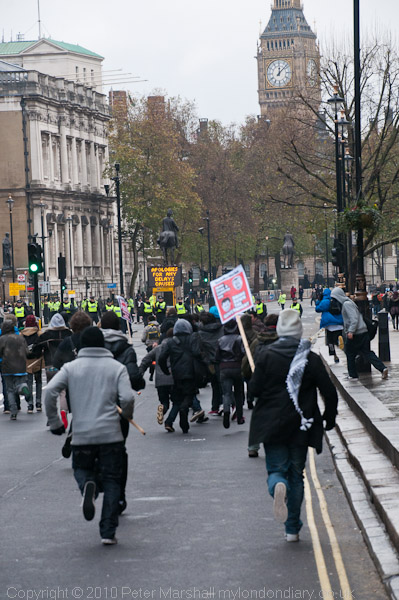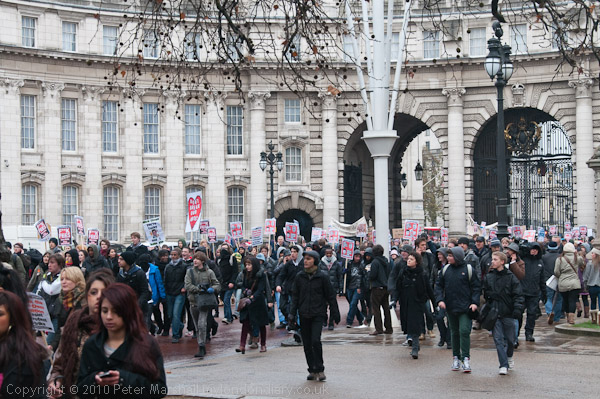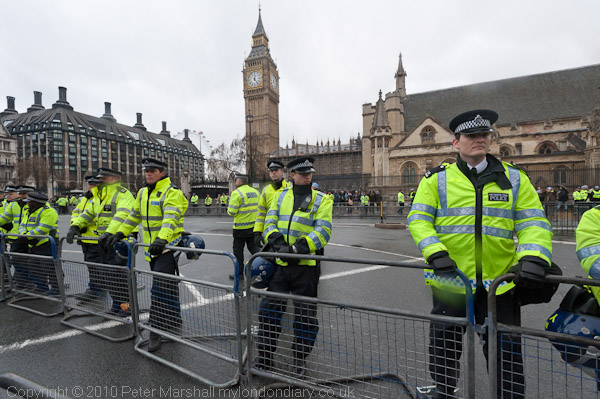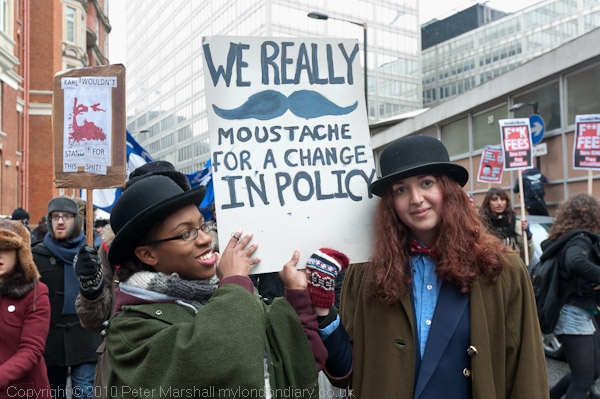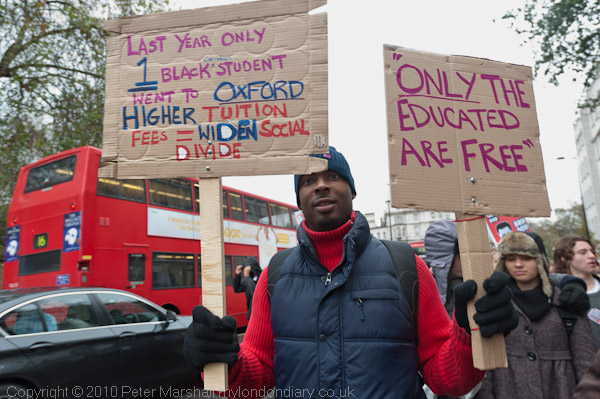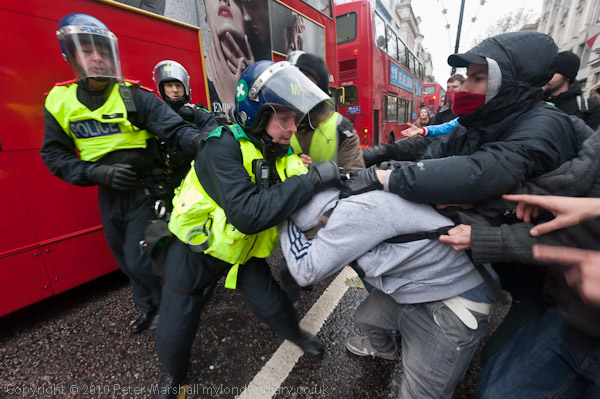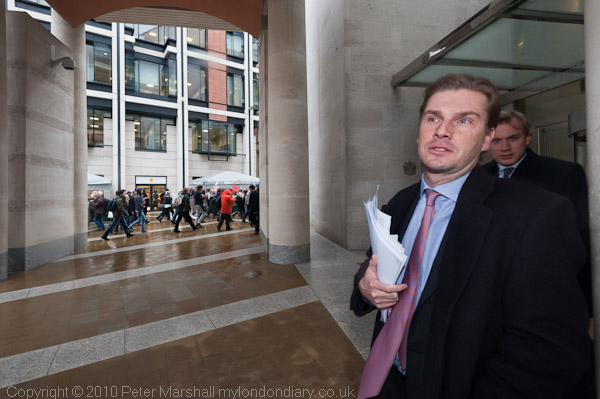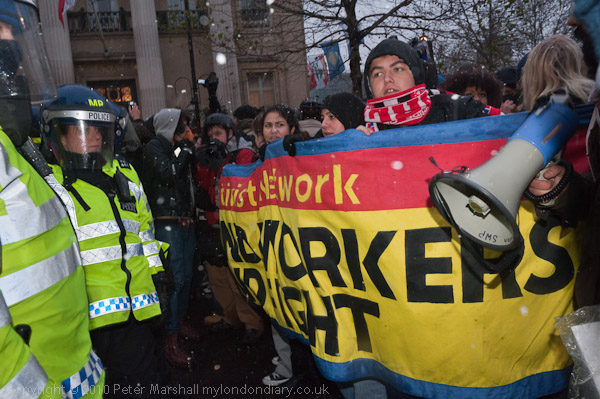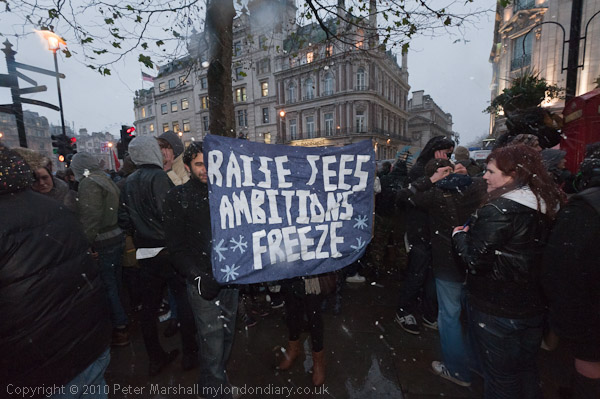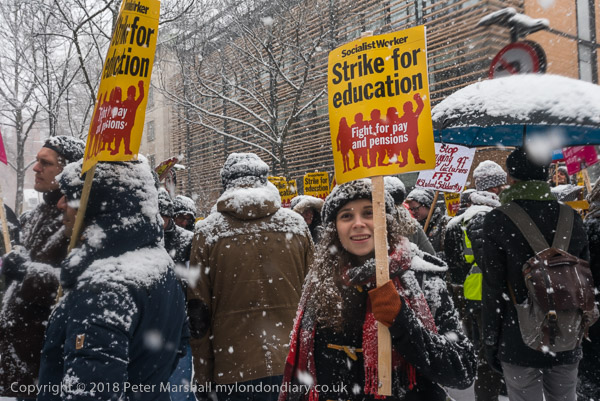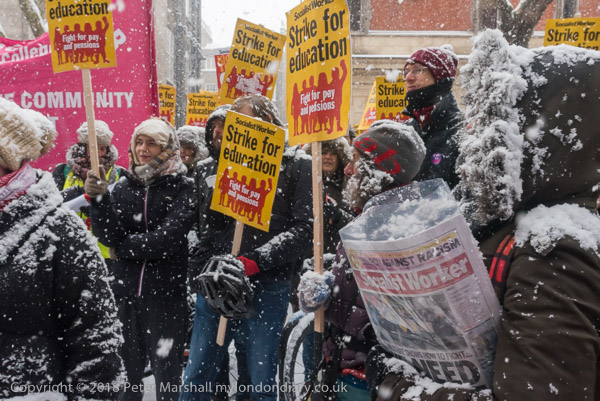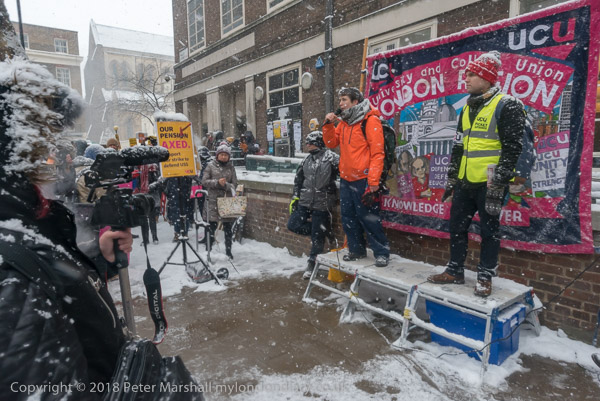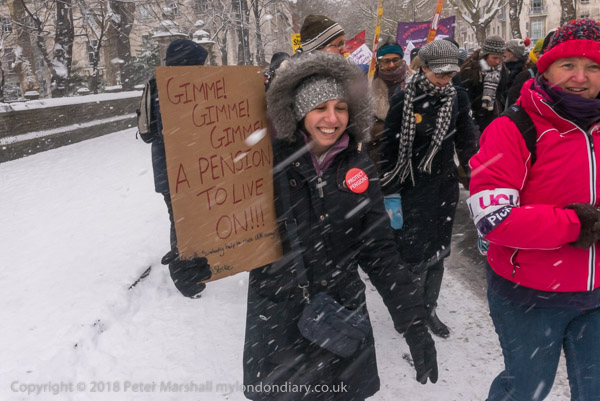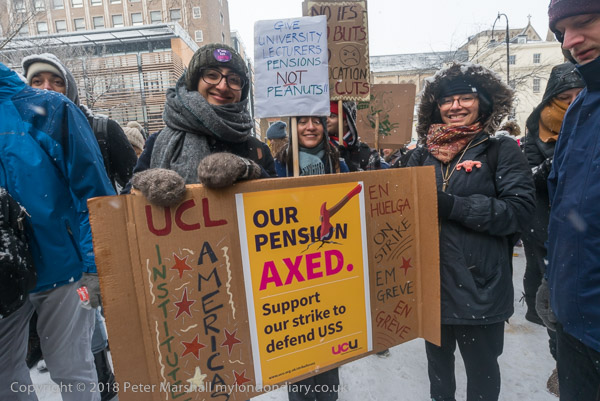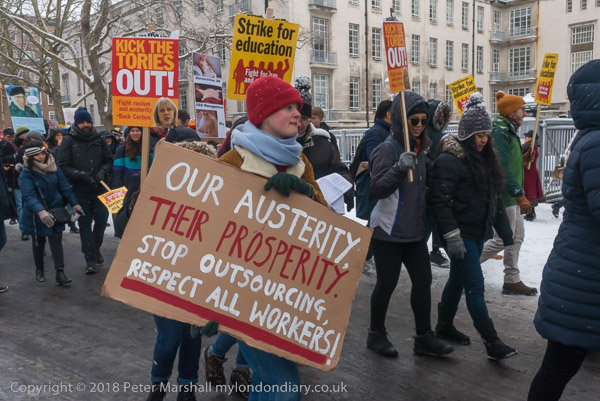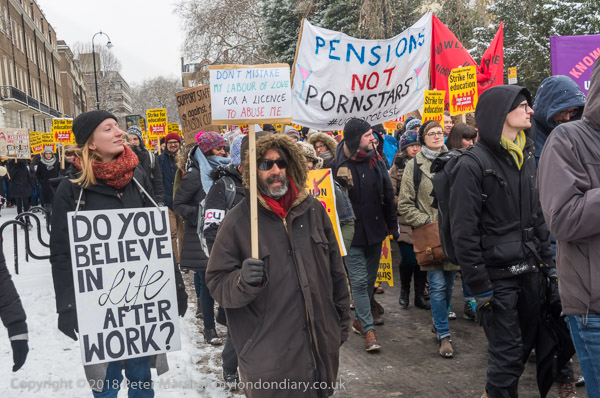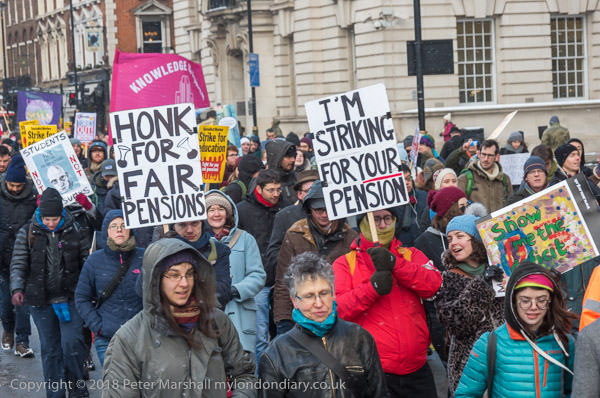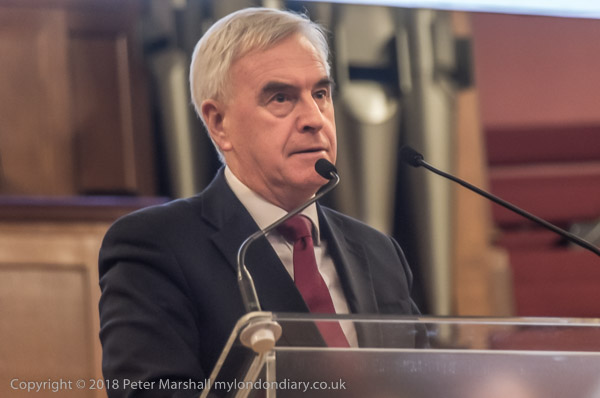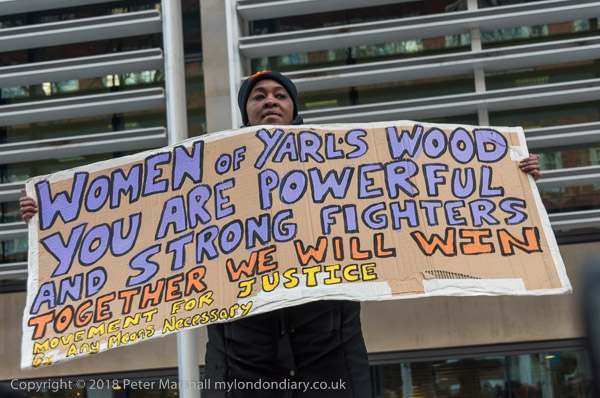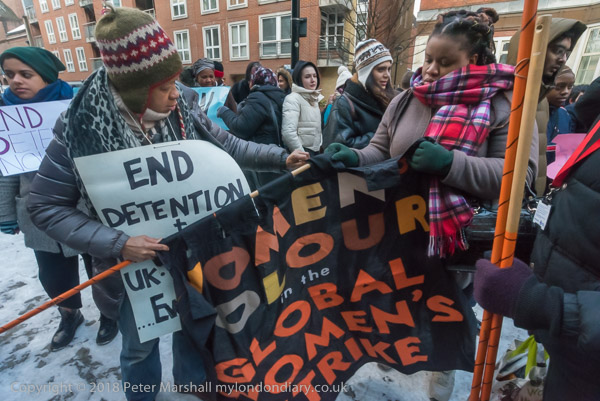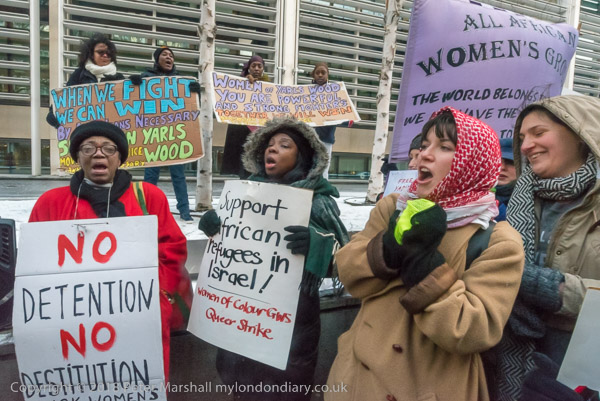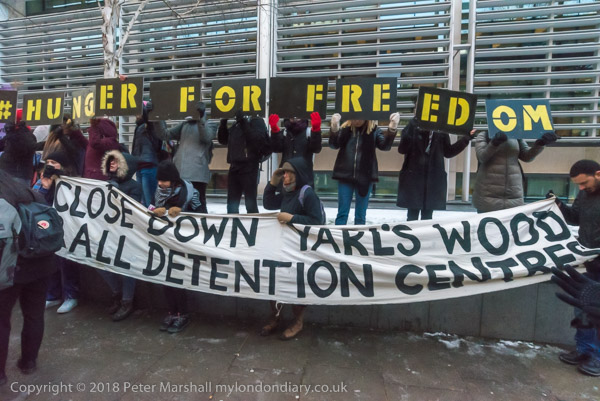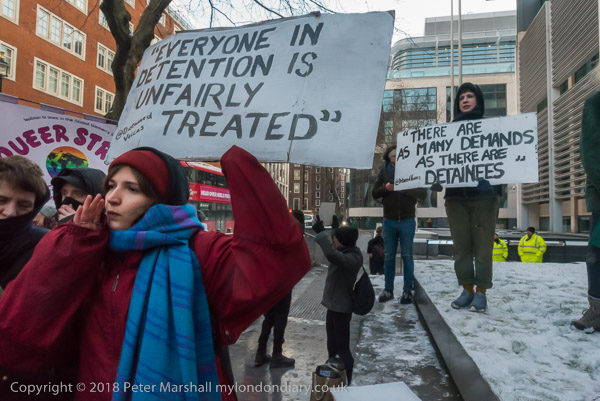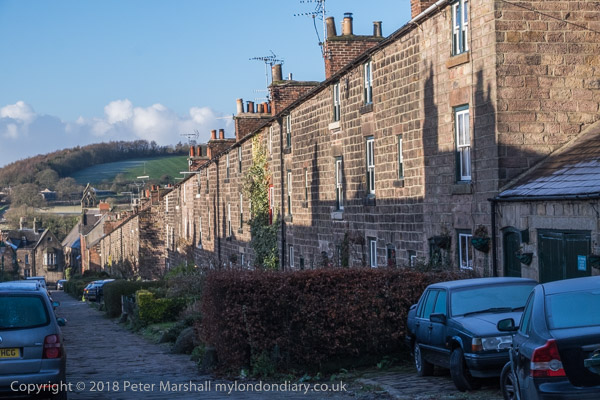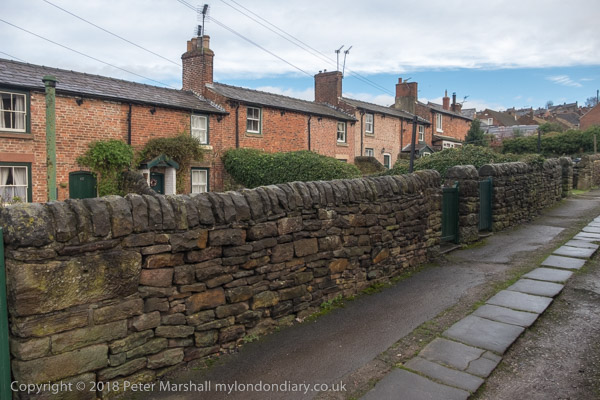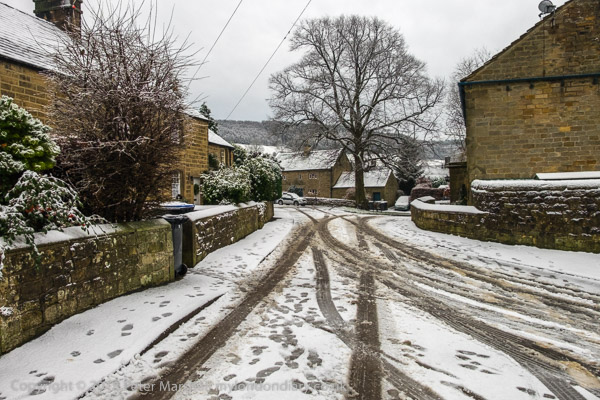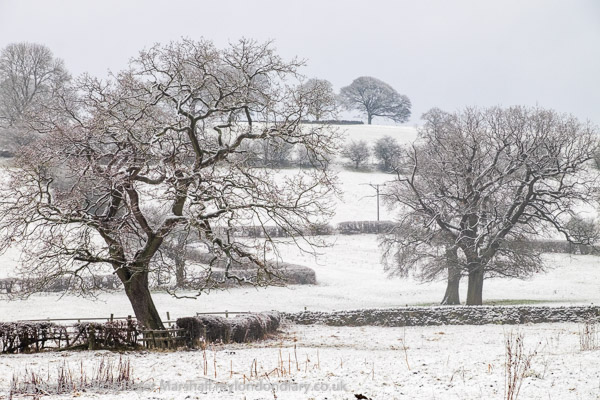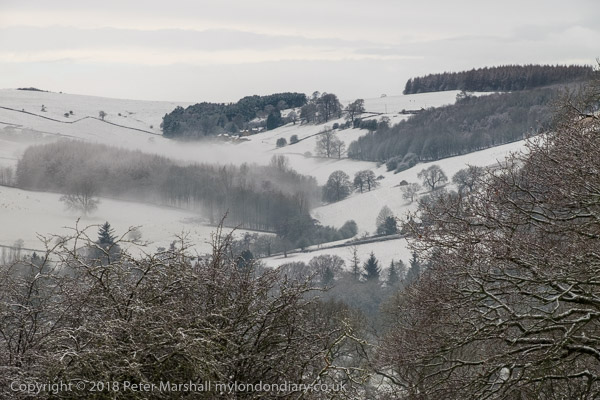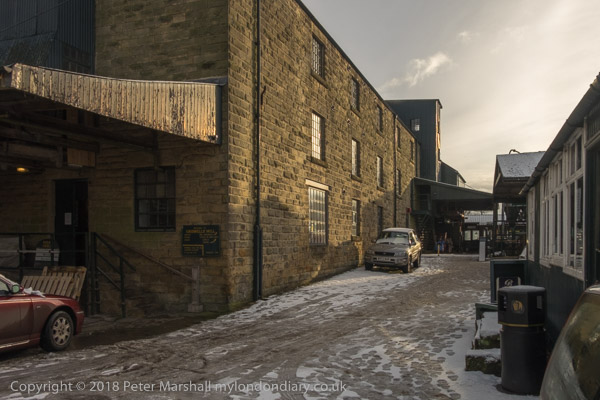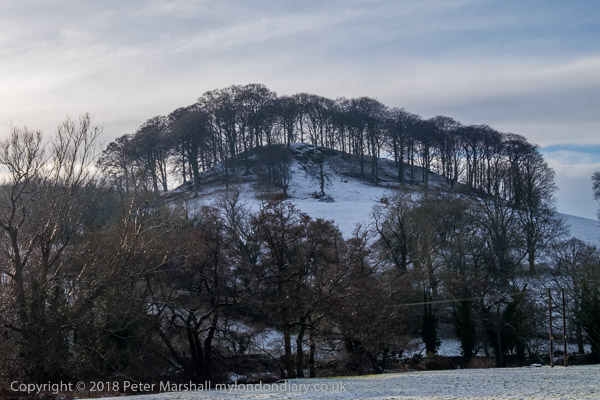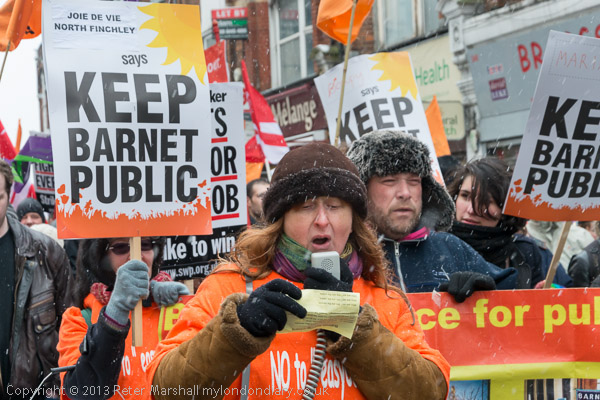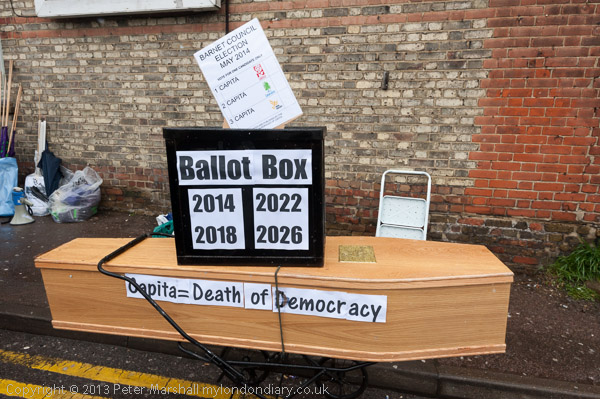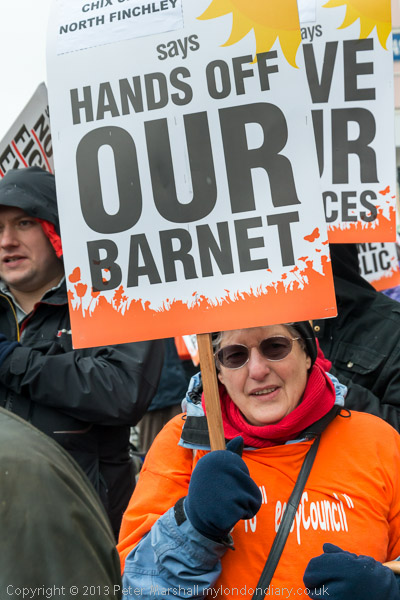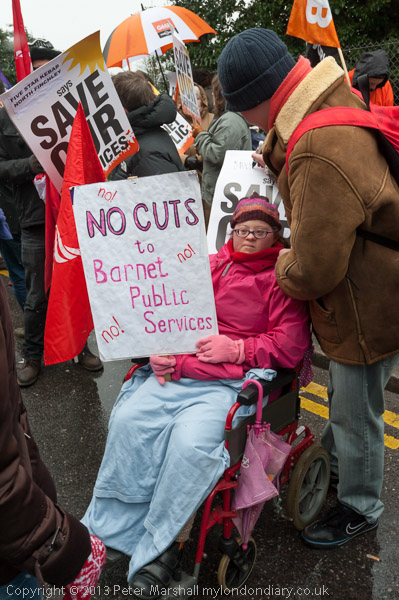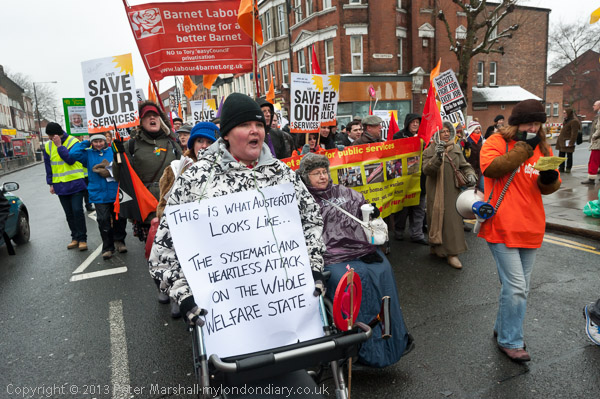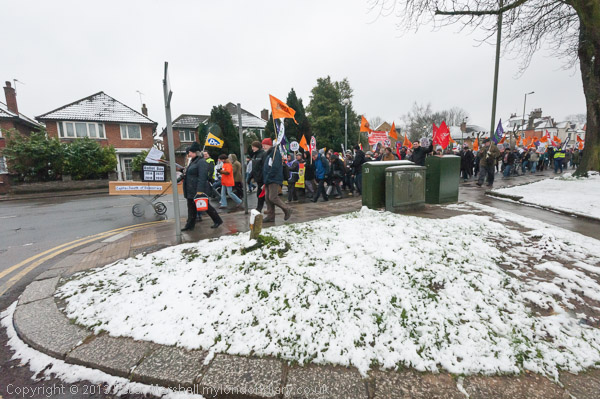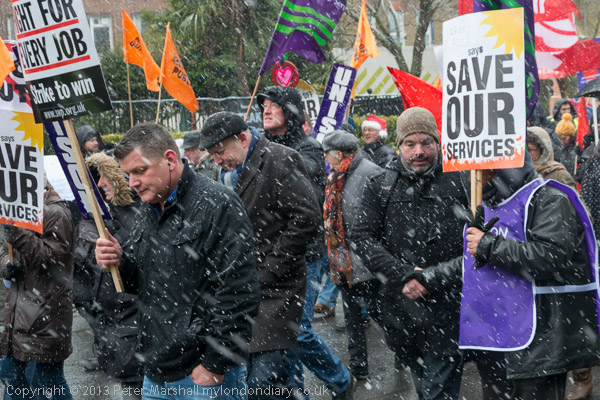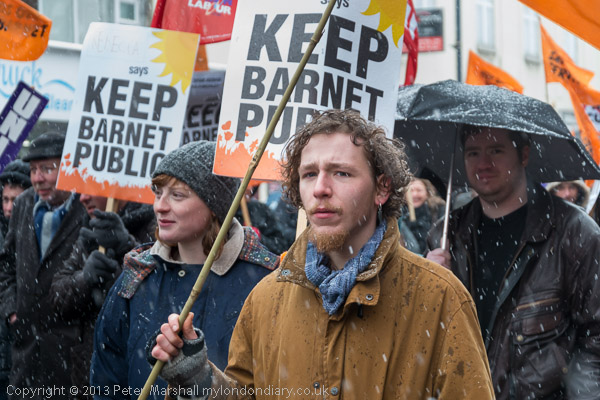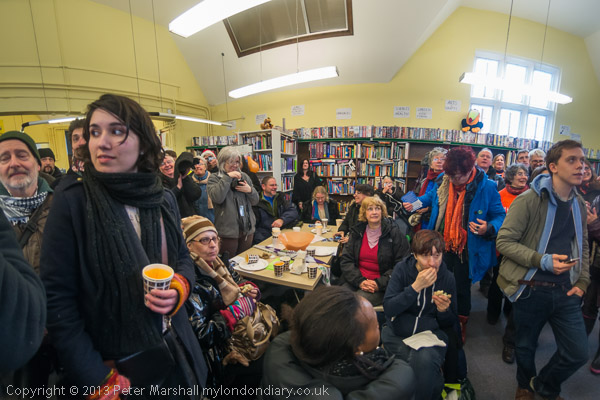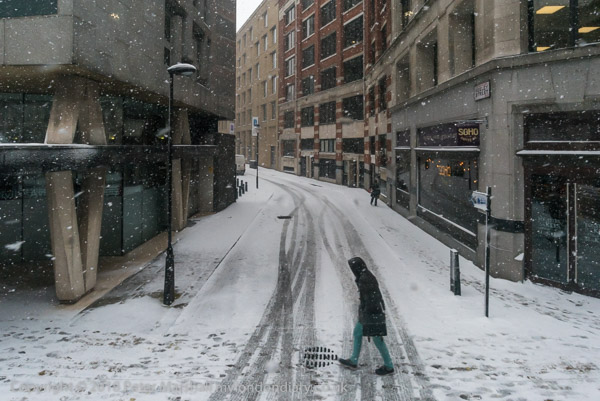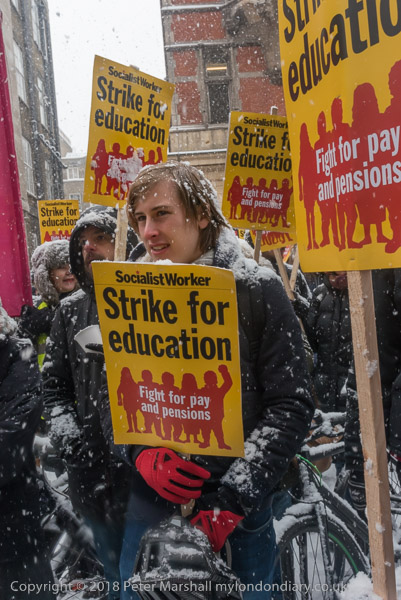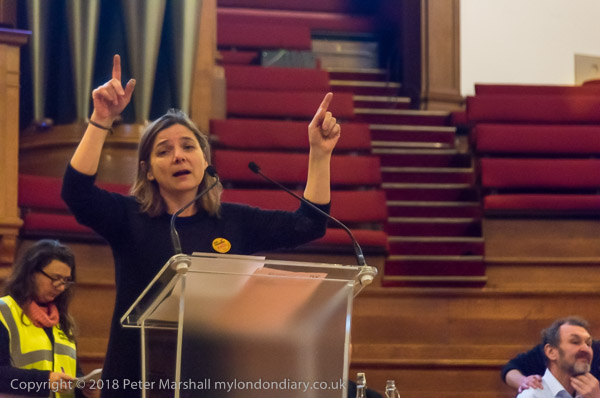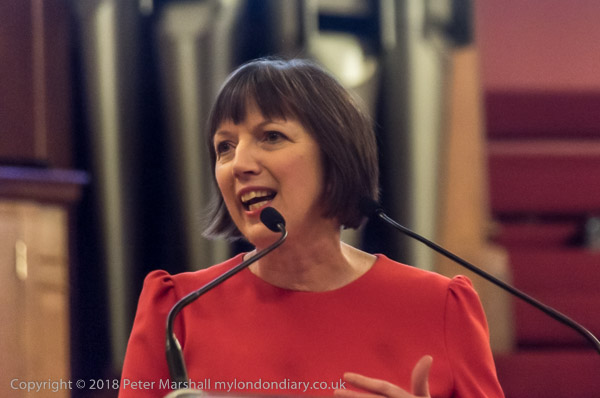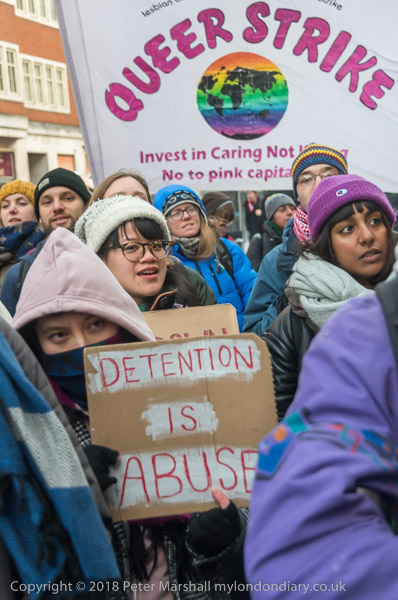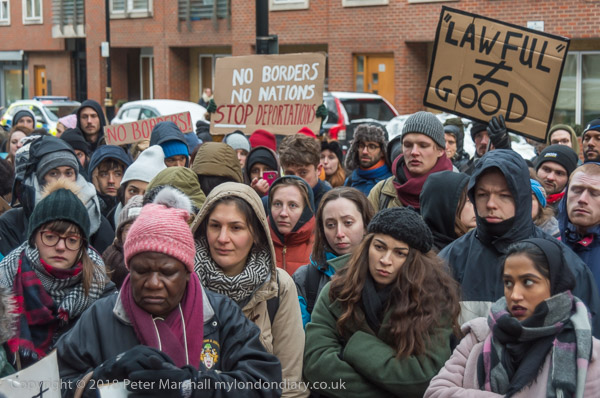An Icy Day in Westminster, Drums for Sudan: Saturday 10th January 2010 was an icy day in Westminster with snow still lying on grassy areas and though it was bright with a little wintry sun there was a chill north-east wind and the temperature stayed around zero. But despite the weather there were a number of protests taking place and I had wrapped up well to cover them. Though the rather thin gloves I needed to let me operate my cameras failed to keep my hands warm, though I could keep them gloved in my pockets when not taking pictures.
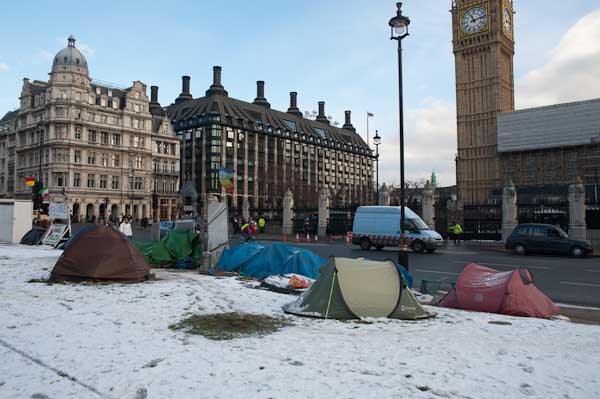
I began by walking from Waterloo across Westminster Bridge to Parliament Square where there were a few tents of the Brian Haw’s Peace Camp, continuing since June 2001, but the protesters were sensibly keeping inside.
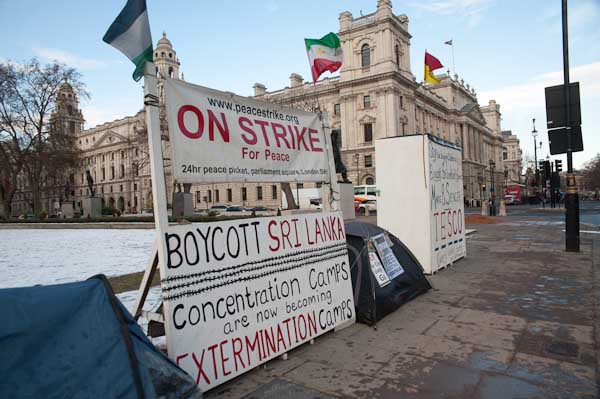
Next to them were the banners and box of the Peace Strike, then drawing attention to the killing of Tamils in Sri Lanka and calling for a boycott of Sri Lankan made garments and holidays in the country.
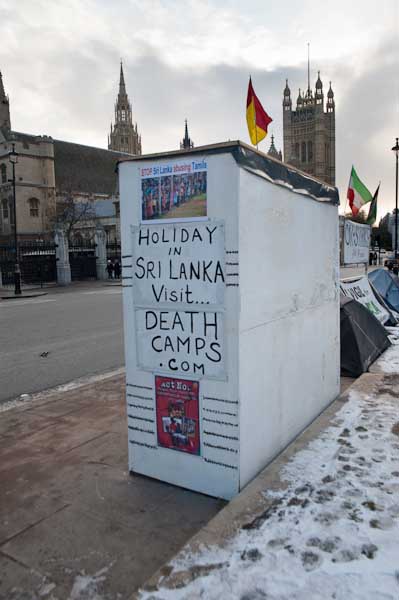
I didn’t disturb the protesters sheltering inside their tents but “walked up Whitehall past the government offices and the gathering demonstration over Sudan.” On my way I took a few pictures including of the 1861 former Colonial office – now the Foreign and Commonwealth Offices – “an imposing reminder of the Victorian era when Britain ruled much of the world (and then and later produced much of the mess it is now in.)”
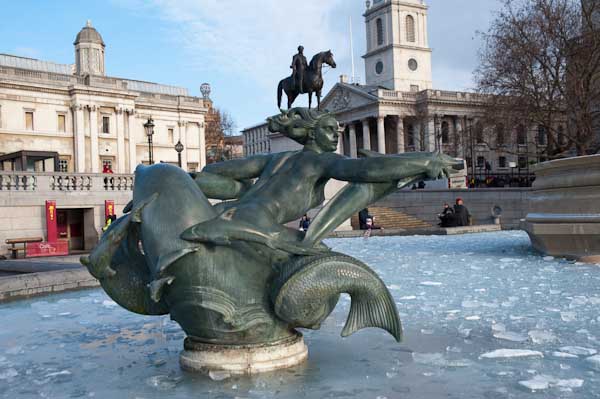
Thick ice covered the fountains in the square, with lumps of ice broken from the edges and thrown across now covering it. But despite the cold there were at least two groups of protesters on the North Terrace.
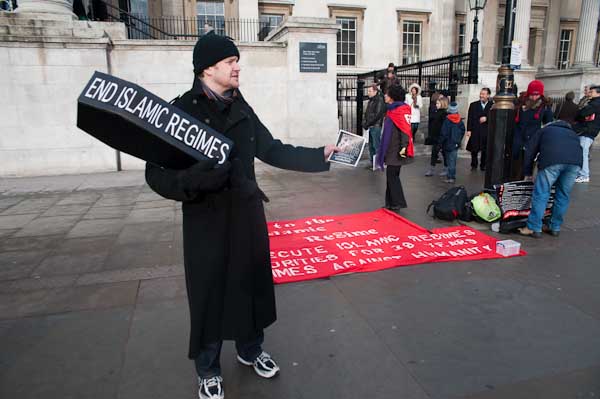
One was a regular Quaker vigil for peace in the Middle East which I didn’t photograph on this occasion. But I did take some pictures of the Iran Solidarity group who have organised daily acts of solidarity in Trafalgar Square and in other cities since Monday July 27 2009 over the killing of Iranian student Neda Agha-Soltan at a protest in Tehran, Iran on June 20, 2010.
More at Westminster – Ice & Protest
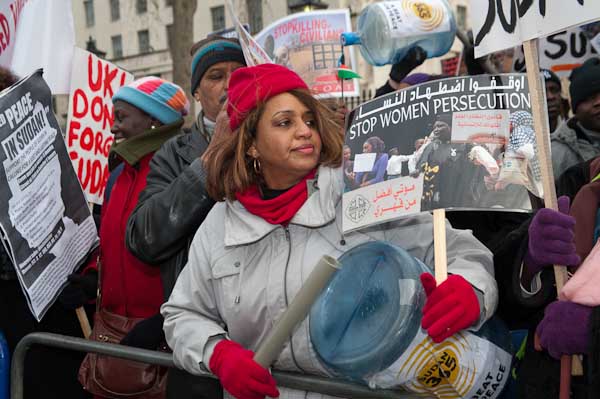
I was in a hurry to get back to the Drums for the start of the Sudan protest opposite Downing Street. This was the start of a year of the global Sudan365 campaign by a coalition of groups including the Aegis Trust, Amnesty International, Arab Coalition for Darfur, Darfur Consortium, FIDH, Human Rights Watch, Refugees International and the Save Darfur Coalition leading up to the 2011 Sudanese referendum in January 2011.

Around 200 people, mainly Sudanese, including a large contingent from Coventry, had turned up for a couple of hours of noisy drumming and some speeches, including one by Sudanese Archbishop Daniel Deng who was in London for meetings with Prime Minister Gordon Brown and Archbishop Rowan William on the following Monday.
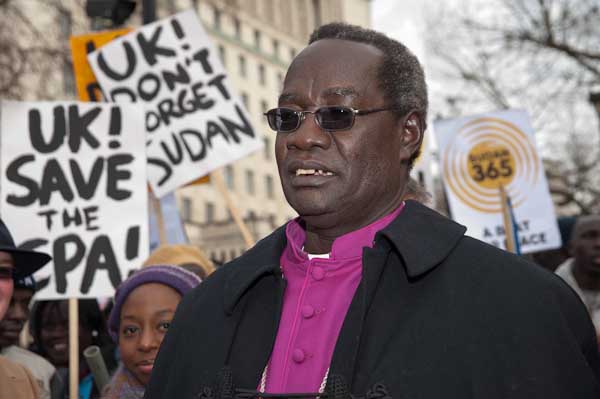
The protesters called for peace, human rights and development for all in all regions of Sudan, with safety and security for all, as well as protection for Darfur and women’s rights. They supported the 2011 peace agreement which had called for a referendum over independence to be held in Southern Sudan in January 2011, and demanded free and fair elections in the country.
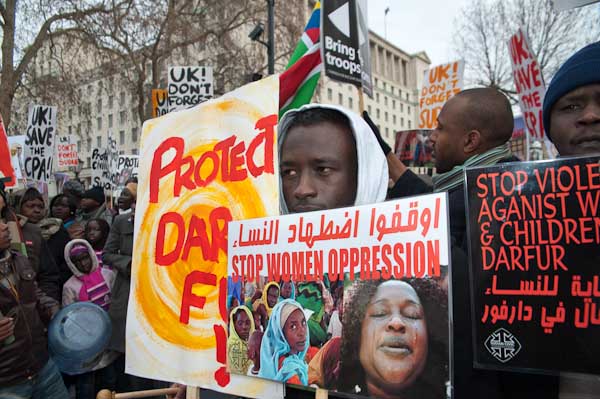
“The Sudan365 campaign’s ‘Drum for Peace’ has attracted support from some of the most famous drummers from around the world, including Phil Selway of Radiohead, Stewart Copeland of The Police and Pink Floyd’s Nick Mason, who are taking part in a film in which the drum beat for peace, starting in Sudan is passed to drummers around the world, including in Brazil, Mexico, US (New York and San Francisco), UK, France, Spain, Senegal, South Africa, Ghana, Egypt, Mali, UAE, Japan, Russia and Australia.”

The 2011 referendum had over a 97.5% turnout by registered voters and over 98% of these voted in favour of independence. South Sudan became an independent state on 9 July 2011, but this was followed by seven years of civil war in 2013-20. The peace agreement called for elections in 2023, but these have been twice postponed and are due to take place in December 2026. Fighting broke out again in 2025.
More about the protest on My London Diary at Drum For Peace in Sudan.
Flickr – Facebook – My London Diary – Hull Photos – Lea Valley – Paris
London’s Industrial Heritage – London Photos
All photographs on this page are copyright © Peter Marshall.
Contact me to buy prints or licence to reproduce.
